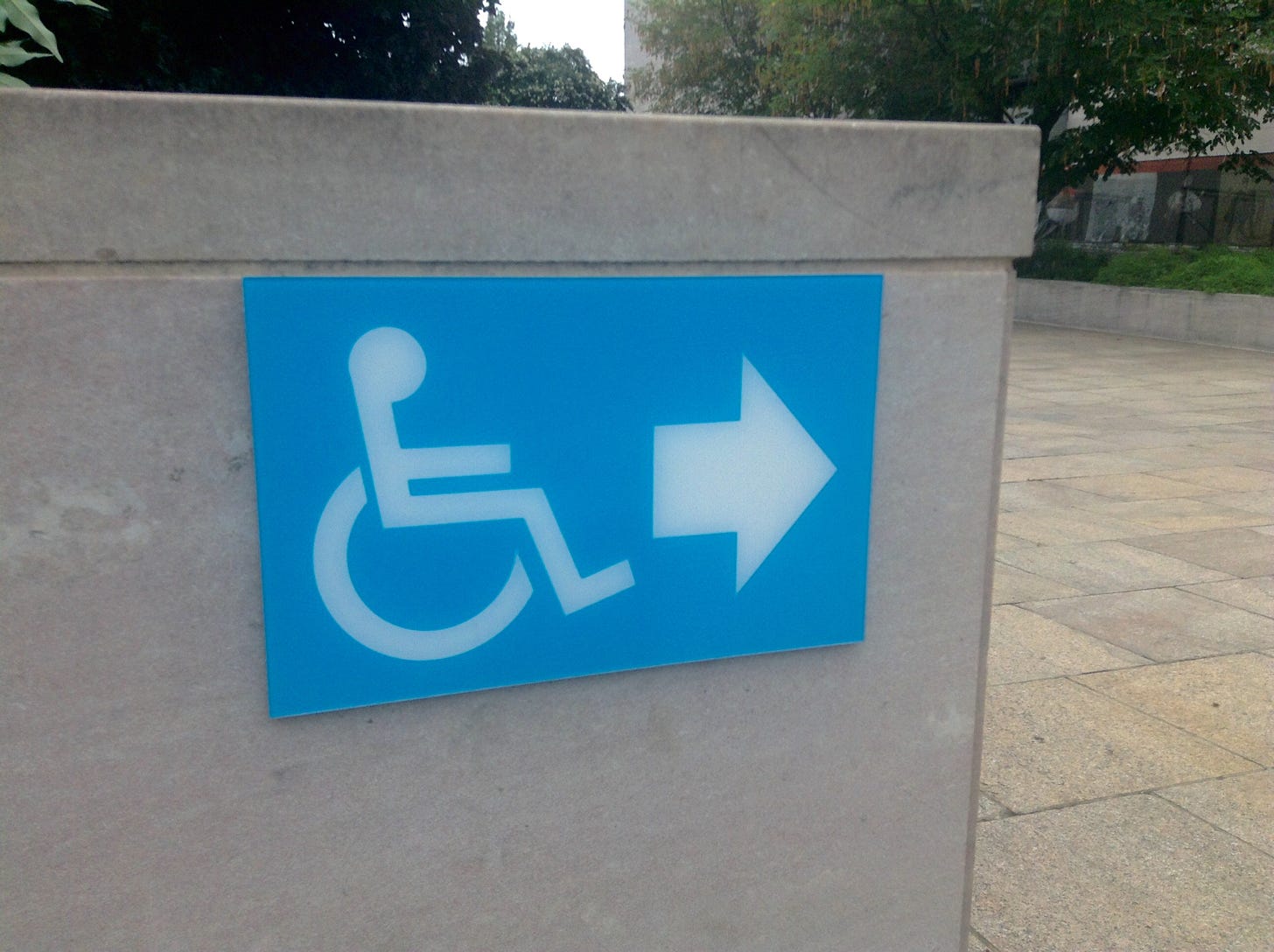How COVID Affected the Disability Rights Movement
A chat with journalist Sara Luterman for our What Now newsletter.
Happy Monday, everyone. For this week’s edition of What Now, I spoke with the great Sara Luterman, an independent journalist who covers disability policy, politics, and culture. We talked recently about what it’s been like covering disability issues during COVID, how the pandemic pushed the needle on changes that should have happened a long, long ago, how disability rights and the labor movement go hand in hand, and my old foe, the Sia movie, Music. You can find Sara on Twitter, and read her work in The Nation and The American Prospect, among other places.
The following interview was edited and condensed.
What has it been like for you as a journalist over the last year covering the disability beat during COVID?
It's been horrifying. I mean, honestly the first thing I thought of is that I would like my friends to stop dying. I have multiple friends who died last year, not from COVID directly, but because they rely on home care services and those services were disrupted. So yeah, it's been really miserable to see the impact on my community. A lot of people have died. A lot of people I know have died. It’s been hard.
I can’t imagine what it’s been like on both a personal and professional level. Do you feel like, as we go “back to normal” and as we have a new president in office, there’s been some amount of relief? I know, for example, that it was a very big deal that Biden included home care in his joint address—is that a notable shift towards the positive?
It's huge. I wasn't expecting that at all. I wrote this piece for The Nation last year about nursing home abolition—about the idea that, instead of having people sort of warehoused in nursing homes until they die, we provide home care. It’s not an idea that I invented by any stretch of the imagination, it's been pretty common in the disability rights and disability justice communities for decades. But I had trouble getting anyone to agree to let me write it until COVID. It's kind of sick, but the massive death rate has really increased interest in a lot of stuff that the disability community has been talking about for years. And I wish that we could have had those discussions before so many people died. But I guess it's good that we've finally gotten here. The amount of money that Joe Biden put in his infrastructure plan for home care is staggering. I interviewed folks for a piece I wrote for The American Prospect about it, and basically everyone was shocked and awed, and these are policy advocates that have been working in the field for forever. It's amazing to be in this moment, but also I wish that getting here had a lower body count.
Why is that money so important?
The money specifically is going to be for this thing called Medicaid home and community-based services. So basically, when people have really significant disabilities, they need help with what are called ADLs or activities of daily living—stuff like eating, getting dressed, getting out of bed. When people need that kind of assistance, most Americans get it through Medicaid. The other option is for people to pay out of pocket, which is incredibly expensive. The average cost is about $45,000 a year per person to do that kind of home care. So Medicaid pays for that for the most part to this program called HCBS or Medicaid home and community-based services. However, Medicaid is an entitlement, which means that the government is required to pay for the amount that's needed—but they're only required to cover nursing home care. They are not required to cover home care, even though home care is less expensive in a lot of instances, safer in most instances, and a lot more dignified. Most people would rather stay in their own homes than live in nursing homes overall. So, because it's not required, what Medicaid home and community-based services is—it's called a waiver. So there were like these experimental programs that Medicaid has that are optional that states can opt into. And HCBS is one of those optional programs. Most states have an HCBS program. They provide extremely variable levels of care. Because it's a waiver program there isn't a national standard or rule for what needs to be covered. So some states do an IQ cutoff—you can only get certain kinds of support if you have an intellectual disability, but if you have a different kind of cognitive disability, they just won't pay for it. The amount of care that's offered is very variable.
Keep reading with a 7-day free trial
Subscribe to Discourse Blog to keep reading this post and get 7 days of free access to the full post archives.





